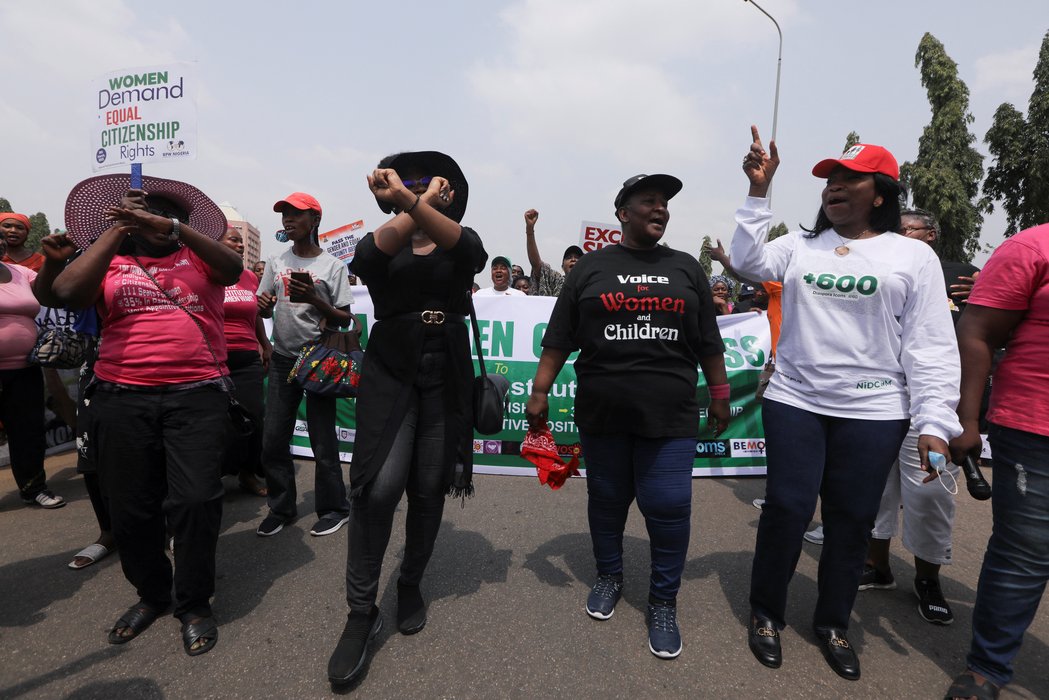67 Civil Society Organizations (CSOs) in Nigeria have joined forces to sound the alarm on what they perceive as a growing threat to democracy and civic freedoms. This unprecedented coalition, representing a broad spectrum of advocacy groups, has issued a stark warning about the state of Nigeria’s democratic institutions and the treatment of activists, journalists, and protesters.
On a sweltering Tuesday afternoon in Lagos, representatives from dozens of CSOs gathered at the Press Center to deliver their message. The atmosphere was tense, reflecting the gravity of their concerns.
“We stand here today, united in our conviction that the very fabric of our democracy is under threat,” declared Aisha Mohammed, spokesperson for the coalition. “The recent events we’ve witnessed are not isolated incidents, but part of a disturbing pattern that must be addressed.”
The coalition includes some of Nigeria’s most prominent civil society voices, such as Amnesty International Nigeria, BudgIT Foundation, and the Socio-Economic Rights and Accountability Project (SERAP). Their joint statement paints a troubling picture of a civic space under siege.
The CSOs pointed to several recent events that have raised alarm bells across the country. Among the most concerning was the arrest of the Nigerian Labour Congress (NLC) leader, which sent shockwaves through the labor movement and beyond.
Eyewitness accounts of the arrest paint a chaotic scene. It was like something out of a movie,” recounted John Okafor, a union member who was present. “One moment we were peacefully assembling, the next, security forces descended on us. The leader was whisked away before we could even react.”
Adding to the tension was a reported siege on SERAP’s offices, an act the coalition views as a direct attempt to intimidate one of Nigeria’s most vocal accountability organizations.
Perhaps most disturbingly, the government’s response to peaceful protests has allegedly resulted in fatalities, unlawful detentions, and even treason charges against minors. These actions have left many Nigerians questioning the state of their civil liberties.
In response to these developments, the coalition has put forward a series of demands aimed at restoring faith in Nigeria’s democratic institutions:
1. An immediate halt to the harassment of NLC officials
2. An unconditional apology for the President’s arrest
3. The release of all detained peaceful demonstrators
4. Compensation for individuals harmed during protests
5. A human rights-centered approach to addressing dissent
6. An end to the harassment of civic actors and journalists
7. The initiation of dialogue with civil society, media, and professional groups
Dr. Oluwaseun Akinwale, a political scientist at the University of Lagos, emphasized the significance of these demands. “What we’re seeing here is not just a list of grievances, but a roadmap for restoring trust between the government and its citizens,” she explained. Each of these points addresses a critical aspect of democratic governance.”
Behind the official statements and policy demands lie the personal stories of Nigerians affected by the crackdown on civic space.
Chidi Nwosu, a young journalist who was briefly detained after covering a protest in Abuja, shared his experience: “I was just doing my job, reporting on events as they unfolded. Suddenly, I found myself in custody, treated like a criminal for simply holding a camera. It’s a chilling reminder of the risks we face in pursuit of the truth.”
Similarly, Fatima Usman, a student activist charged with treason for participating in a peaceful demonstration, spoke of the impact on her life. “I never imagined that expressing my views could lead to such serious accusations,” she said, her voice trembling. “My family is terrified, and my future hangs in the balance. Is this the price of democracy in Nigeria?”
As of press time, the federal government has not officially responded to the coalition’s statement. However, sources within the administration, speaking on condition of anonymity, suggested that high-level discussions are taking place to address the concerns raised.
Meanwhile, the international community has begun to take notice. A spokesperson for the United Nations Human Rights Office expressed concern over the reports coming out of Nigeria. We are closely monitoring the situation and urge the Nigerian authorities to ensure that the rights to freedom of expression and peaceful assembly are fully respected,” the spokesperson stated.
As tensions continue to simmer, the question on many minds is how the government will respond to the coalition’s demands. Dr. Akinwale offers a cautionary note: “The administration faces a critical choice. Engaging in genuine dialogue could pave the way for a stronger democracy. But neglecting these concerns risks further eroding public trust and potentially pushing the country towards a more authoritarian path.
The CSOs have made it clear that they view their actions as a last resort to protect Nigeria’s democratic institutions. “We do not take this stand lightly,” Mohammed emphasized in her closing remarks. But we cannot remain silent in the face of these challenges. The future of our democracy depends on how we address these issues today.”
As Nigeria grapples with these fundamental questions of governance and civil liberties, the eyes of the nation and increasingly, the world are fixed on how this confrontation between civil society and the government will unfold.
The coming days and weeks will be crucial in determining whether Nigeria can chart a course towards greater democratic freedoms or if the country will face a prolonged period of civic unrest and international scrutiny.



